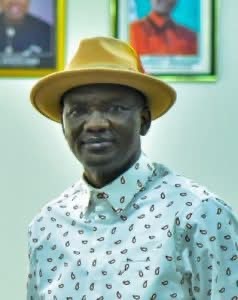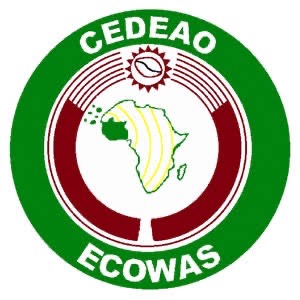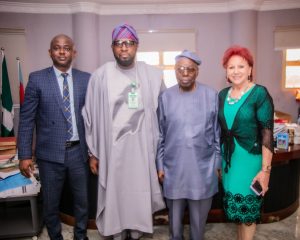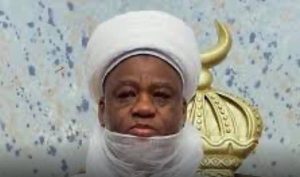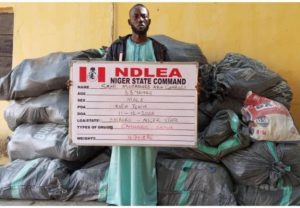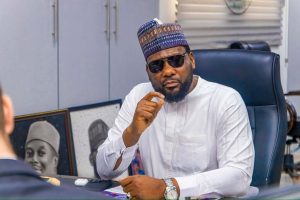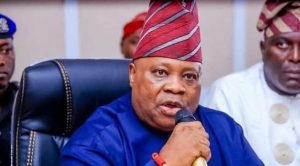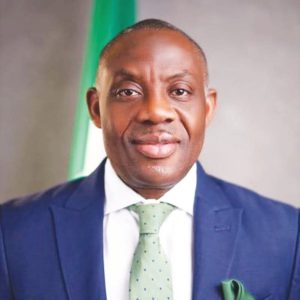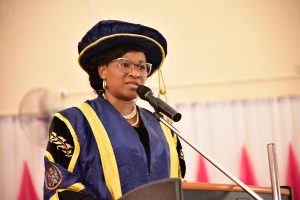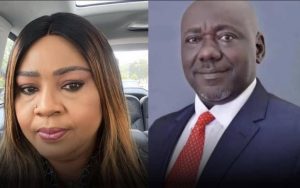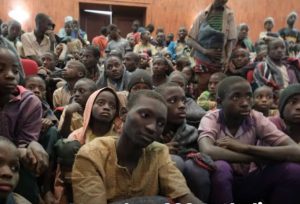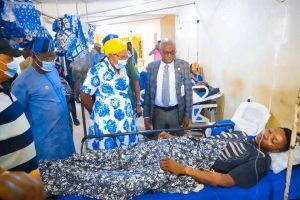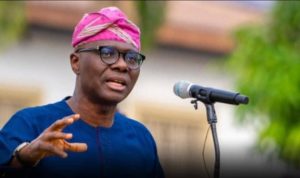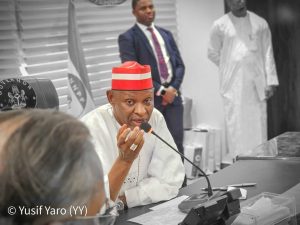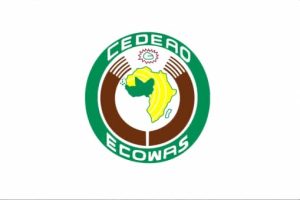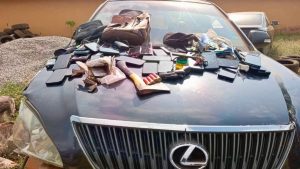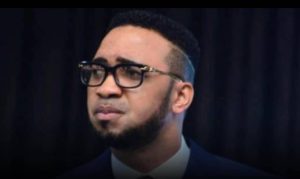Dayo Duyile is an Octogenarian who made his mark in the field of journalism in Nigeria. He is the author of the popular book “Makers of Nigeria Press” who recently defended his PhD thesis at 82 from the University of Lagos. In this Interview with Tosin Adesile, he spoke about his journey from journalism to academia
SPARKLIGHT NEWS: How do you feel graduating with a PhD degree at 82?
Dayo Duyile: It’s natural with me. My feeling is that it’s a thing that is achievable. I’ve always been thinking about it for more than 35 years now, the opportunity came several times. But I had no time to start the programs. So I think this is God’s time, and I feel very happy for achieving it at last. Because many of my friends criticized me when I started, they thought I was wasting my time. And I told them that time will tell who is wasting his or her time. So when this happened now, and I successfully defended my thesis, Oh, I feel on top of the world.
SPARKLIGHT NEWS: Your record-breaking achievement became the central idea of the 53rd Unilag convocation press conference. How did you take the news?
Dayo Duyile: Again, it’s an additional situation to what I was thinking, because I didn’t think that it will go this far, that the celebration will be a celebration galore. I didn’t think about that. I did my course because I wanted to do a course in mass communication research on the development of early newspapers. It has always been my topic, and I was looking for the opportunity to do it. And to exercise it at the post-doctoral or doctoral level. So when it happened this way, again, I will say that I’m filled with joy. But again, it is God’s doing. You know, if there is no good health, you can’t do it. Then if you’re not focused, you can’t do it. If you’re suffering from dementia, you can’t do it. So good health, with what I call the gratitude and faithfulness of the Almighty God. That is what brought me to where I am now.
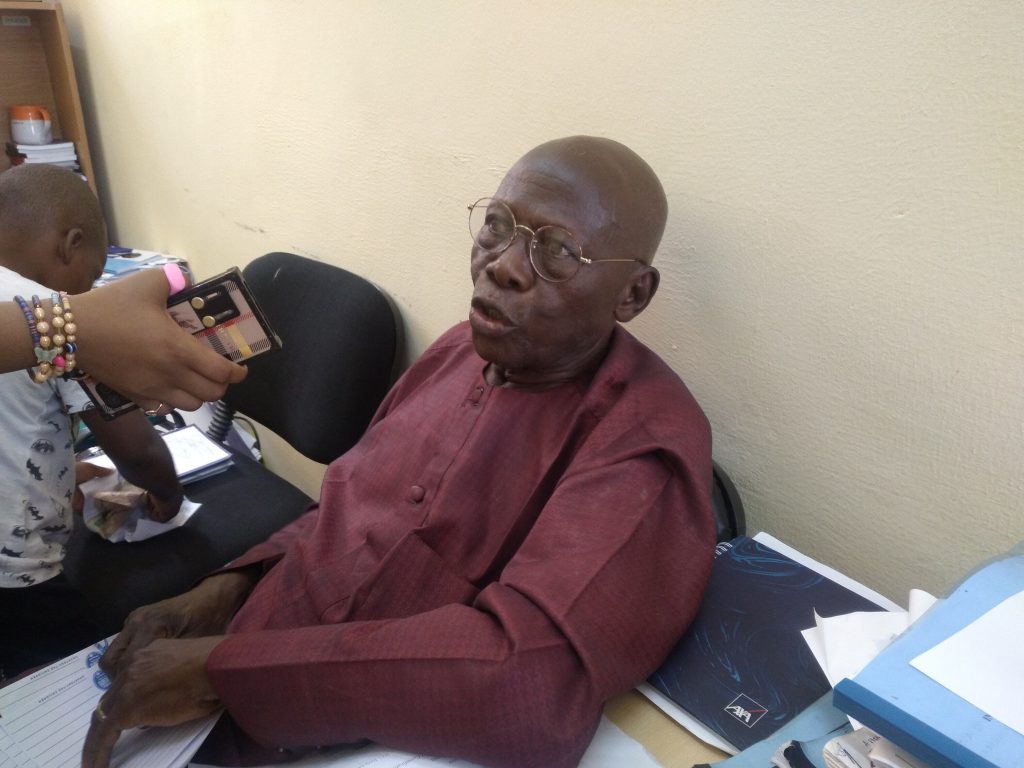
SPARKLIGHT NEWS: What were the challenges you faced when you started?
Dayo Duyile: Oh, there were many challenges, so many challenges. First of all, I was going from Ondo town to Akoka in Lagos, which is at a distance of 200 kilometers. And then, every week I had lectures throughout the period of the program, and I didn’t miss any lecture throughout the five years. So leaving Ondo very early in the morning at 4:30am, plying that very dangerous Lagos-Ondo route, I say thanks be to God, because people thought I was joking, according to them, if i don’t have anything to do, why can’t i just sit at home and relax? Why going to Lagos every now and then, for my course? But I did not listen to any negative comments, i was focused, and quite determined that I must have the PhD by the grace of God. And after that, five years have passed, and here we are. So my challenges were traveling to Lagos, coming back to Ondo and repeating it next week, week after week after week, for five years. You know what that means? So those were the challenges. Apart from that, the gathering of materials for my thesis posed another challenge. I looked at the National archives at the University of Ibadan but I couldn’t get enough material. I looked at the National Library in Lagos, still no material. I went to Calabar to interview and to get some materials from Presbyterian headquarters, materials were not available. So I had to travel to England, where I found very important support from the Cadbury research library of the University of Birmingham. I got all the materials, all the handwritten documents of Henry Townsend and that of Pope Waddell of the Presbyterian, who were in Nigeria, in mid-18th century to 19th Century. I got all that. So I was elated that Oh, yes, like Mungo Park said when he discovered River Niger, that he has achieved his objectives. He said ‘I saw with infinite pleasure, the great object of my mission.’ So the same thing happened to me, I saw the great object of my mission. So I gathered a lot of materials, which I can continue to use after the PhD too. So these were the challenges I faced.
SPARKLIGHT NEWS: You were the reporter that covered the opening of Unilag, 60 years back? did you envisage you you’ll be bagging a PhD when the school will be turning 60?
Dayo Duyile: I didn’t even think I would attend the university. Because at that time in the 1960s when I became a reporter, my ambition was to attend the Regent Polytechnic in London, because that was the only higher institution that produced many veteran Nigerian journalists like Jack, and Olabisi Onabanjo as well as other reporters, like that good writer, Ebenezer Williams, many of them, including Alhaji Babatunde Jose of blessed memory, all those old journalists went to Regent Polytechnic in England. So that was my mission. I didn’t know I was going to attend the University for any course. In any case, the only university available in Nigeria then was University of Ibadan, and it had no Mass Communication or journalism program. So I didn’t focus, I focused on Regent Polytechnic, England. But when I got to Daily Times in early 1962, Alhaji Babatunde Jose who was the former managing director and editor in chief of Daily times brought out a new policy that anybody who aspired to be editor of any of the publications of Daily Times, must have a university degree. So he compelled every one of us, that policy compelled me to now start looking for admission to the university, and because I had already gotten my GCE advanced level papers, so direct admission into the university was available to me. And at the end of the day, I was assigned to go and witness the laying the foundation stone of University of Lagos at Akoka, then, it was a big forest. A big forest featuring marine trees, big trees, wild palm trees, the fishermen were the only occupants around that place and it was a marsh area. So I thought I was just doing my reporting by going to the foundation laying ceremony which I covered. Little did I know that I will come and be a student of that university.
Eventually, the Prime Minister then, Sir Abubakar Tafawa Balewa played a leading role in ensuring that the university came to be because I remember that he met a delegation as if it was yesterday. I was covering that assignment, and he was telling them that very soon, there will be a university in Lagos that will rank among the best universities in the world. Those were his words. Sir Abubakar, the Prime Minister of Nigeria. So I didn’t know that I will go to that university until it happened when Alhaji Joseph just brought out this idea of graduate journalists coming to make some good career opportunities at the Daily Times, so we were compelled to now go to university. I went to UNILAG, but for the diploma. When I finished the diploma, Alhaji Jose just said, look, you have to go for the degree and I asked him, do you think I will stay here in the daily times? I can go to other places. So I moved to WNTV/WMBS with my diploma. WNTV was the first television station in Nigeria. I went there and they gave me an appointment as sub editor. But it was from WNTV that I went back to the University to do my degree. And as soon as I finished the degree in 1972, I got an appointment as editor of Daily sketch. And that set the ball rolling.
I now said to myself that now that I’ve made it up, I must not stop. So I decided to go for by masters in the same university, the same UNILAG. So when I got an appointment as Director of Nigerian Institute of Journalism in the early 80s, I made up my mind that I must complete the cycle by taking a PhD degree in the same university. So three times alumnus of University of Lagos, my first degree, my second degree, my third degree, as a matter of fact, I will say four times because I did my first diploma there before going for the first degree and returning for the master’s degree. And now later, I returned for the PhD, which has just ended.
SPARKLIGHT NEWS: You mentioned the people you worked with, out of all these, was there any of these great editors that got to PhD level?
Dayo Duyile: No, no, at the period I joined journalism or took it as a career, the issue of going to university for journalism education was not in vogue, back then if you could go to the Regent Polytechnic in London, you’ve made it in life. But some people went to American universities. If you remember Dr. Nnamdi Azikiwe went to American universities for journalism and political science degrees. I think that he was the only person in Nigeria that had a PhD degree in journalism. At that time, he was president of this country.
At that time, you don’t need university education to achieve excellence in journalism. It was taught like, sort of vocation in the polytechnic, and anybody who could speak, who attended secondary school, and could speak tolerable English and could write tolerable English was admitted to be a journalist. But after Nigeria’s independence, that culture changed, because those people that want to go abroad like the news agency correspondents, they were all graduates of universities. So Daily Times did a good work. Alhaji Jose said that credit must go to him for bringing out the policy that we must have a university education even before you can become an editor of Daily Times. That is how Aare Oyebola became an editor of Daily Times. He did economics, & political science. Many of them, you know, so it was in Alhaji Jose’s time that they brought this dislocation of people leaving the newsroom to become editors. I think the last person who enjoyed that was Peter Enahoro himself, a fantastic writer. No, no, he is good. And so it was Alhaji Jose’s time that this issue of graduate journalists started. And it’s good for Nigeria, that journalists must go to university and attain a high standard of education, because the people you want to inform, that you want to write for are educated people, they are in very various professions, so you cannot afford to be half baked as a journalist. And I advise that anybody wants to do some journalism must have a university background, otherwise, nobody will take you serious. You may not be PhD holder, but must go to the university, at least have a first degree.
SPARKLIGHT NEWS: You’ve seen it all in the field of journalism, any advice journalists that want to be successful in their profession?
Dayo Duyile: The next thing we should do now is to, to encourage our young ones, this generation that is coming behind us to specialize in the various aspects of journalism, thank goodness, the Nigerian University commission, NUC has given us a new culture, that instead of doing Mass Communication straight, yes, you will do Mass Communication, but you have to branch out to a specialized area in journalism, broadcasting, radio, television, public relations, or advertising, and so on and so forth. So with that, with good university education background, you can now become a specialist. And anybody who has not gone to the university, properly, cannot be a good journalist in this country anymore, or anywhere outside this country. But as a journalist that has gone to through the university, the world is at your feet, you can travel abroad, and you will be recognized, because they know you have done it in the university, and you’re practicing it now. So otherwise, you’ll be left behind.
Lazy people cannot be journalists, lazy in the sense that you are not ready to read. Even with your first degree, you must read widely. You must go beyond your curriculum at university, read other books, read political science books, read the economics so that you can become a very good writer. I don’t read just journalism. I read all books, including anthropological books, history books, so as you become fantastically professional, when they discuss issues you’ll be able to contribute. You’ll be able to write confidently about what you’re talking about. Otherwise, you’re just a stupid journalist if you’re not reading books, and you’re not interacting with books after your graduation.
SPARKLIGHT NEWS: Any new innovation now that you have completed your PhD?
Dayo Duyile: I have about three publications coming after my doctoral thesis now. One of them is derived from my thesis. The other one is the one I had started about three years ago, and it’s titled, Media and Mass communication in Nigeria, it is the second edition of my first book, and actually, I wrote that first book in 1979. But things have changed, so I’m writing new things about it. Then I have my memoir, which is coming up my years from journalism, put in a book and I call it ‘My Journalism memoirs and My encounters in the Newsroom’ in which I discussed all my challenging newsroom assignments, like the trial of Chief Obafemi Awolowo, which I covered at the Lagos High Court in the 60s, like covering the Commonwealth prime ministers conference in London, my encounters with President Idi Amin of Uganda among others. All those things are my upcoming memoirs, so these are books; three books coming very soon. And I’m even considering going beyond the PhD level areas, there is this possibility of doing postdoctoral fellowship along with it, so I’m not tired. I’m getting ready for that.






